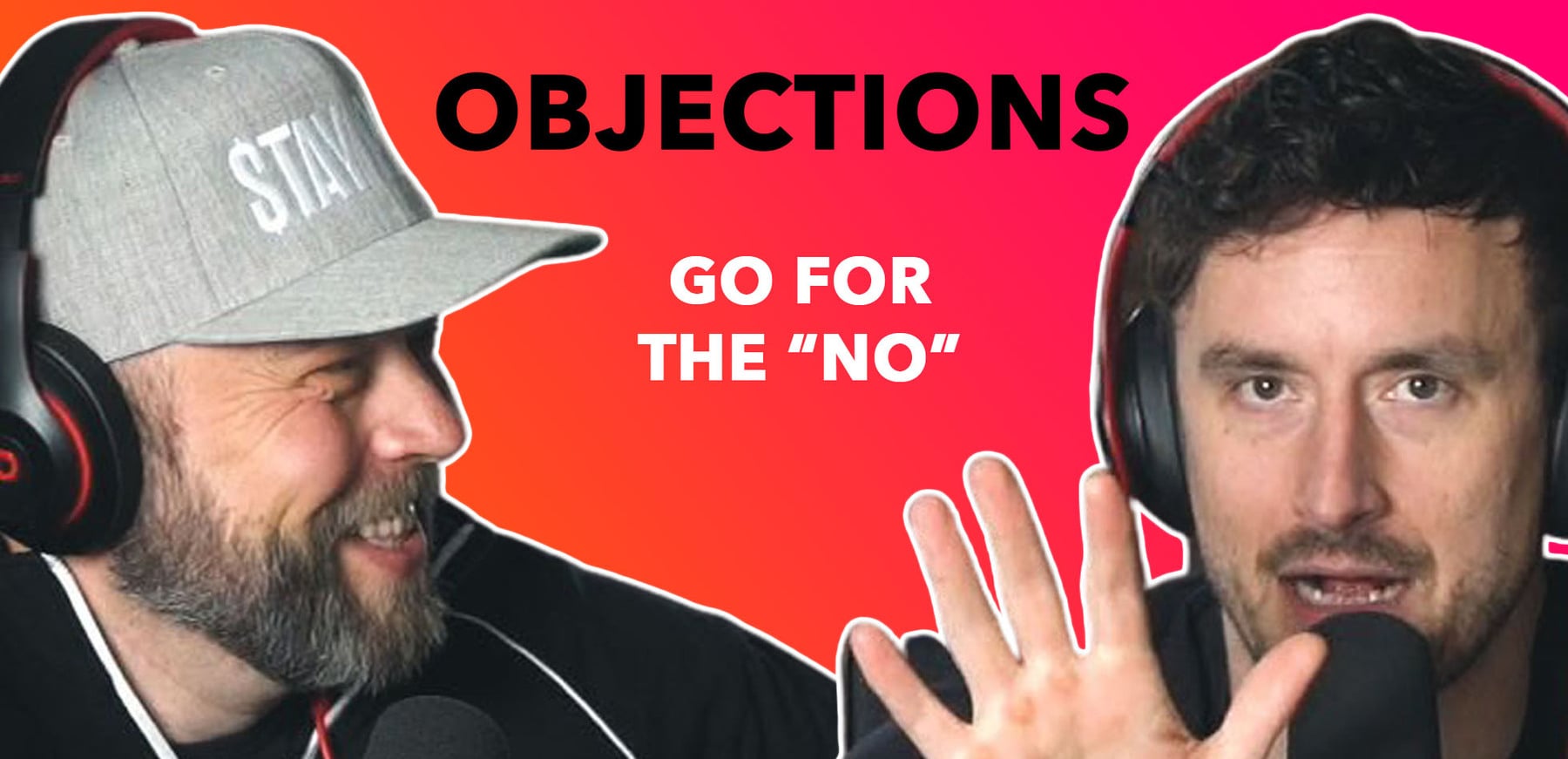Overcoming Objections Used By Internet Leads
Who should listen: If you need a framework for dealing with sales objections from internet leads, especially if you’re a real estate agent, then this is the episode you don’t want to miss.
Key idea: Always go into a conversation with the end in mind—getting a lead’s permission to continue the conversation.
In this week’s Silver Dollar episode, we review a framework for overcoming objections that sales professionals often receive when reaching out to internet leads. And while our examples reflect the typical objections real estate agent’s experience, you can apply these principles in any sales profession.
Affirm and stay in agreement with what your leads say
When reaching out to an internet lead, or any lead for that matter, it helps to understand that they will be wary of your attempt to pitch them. Consequently, they’ll be on the defensive. You don’t want to fuel that defensive posture by disagreeing with what they are saying.
Instead, it is best to repeat back what a lead has said and then agree with them. It’s a tactic that helps to lower their guard. For example, if someone says to you, “This is a crazy market,” then your response should reflect that sentiment, “You’re right; it absolutely is a crazy market right now.”
Rather than counter with an opposing opinion and starting a debate, simply agreeing with a lead’s point of view allows you to negate the objection. Then it’s a matter of quickly pivoting back to the discovery phase.
When you listen to the episode, you’ll hear an example of how this tactic plays out. It’s simple once you understand what you’re trying to do—ask questions to get you the information you want.
Discover their why
The primary purpose of the discovery phase is to find out why your leads want what they want. What is driving them to take action, and how urgent is it that they get what they want?
People are motivated by an infinite number of things, but generally speaking, people act to either get something they desire or to avoid discomfort and pain. Your job during the discovery phase is to ask a set of questions that reveal what that desire or pain is and how urgent it is that your lead acquires or rids themselves of it.
When developing and asking your questions, there are two key points you especially want to keep in mind:
- Develop questions that are easy for your leads to answer with information they already know and can easily share with you. This isn’t the time to ask them to make decisions.
- When asking your questions, make sure your vocal quality reflects positivity, agreement, and excitement. Strive to make the people you are talking with feel good about what they are saying. Don’t make them feel like you are interrogating them.
You’ll hear Josh talk about the kinds of easy to answer questions you should be asking, while Luke does a fantastic job of demonstrating how to talk with your leads to make them feel at ease and comfortable with the information they are giving you.
Go for the no
Admittedly, advising you to pursue a “no” response sounds weird, but bear with us for a moment.
In most cases, it’s far easier for leads who are on guard to say no than it is to say yes. You can use this predisposition toward the negative to your advantage.
The secret is to phrase your questions in ways that allow your leads to give you negative responses but gives you positive results.
The example we use in the episode goes like this:
No response. Negative result.
- You: Are you free to meet on Saturday?
- Lead: No, I can’t do Saturday.
No response. Positive result.
- You: Do you have any objection to meeting on Saturday?
- Lead: No.
- You: Okay, perfect! I’ll meet you Saturday.
Here’s another example:
No response. Negative result.
- You: Do you have time to talk?
- Lead: No. (Click.)
No response. Positive result.
- You: Is now a bad time to talk?
- Lead: No, it’s fine.
- You: Great! Let me take 30 seconds to tell you what I do.
The difference is subtle but enormously powerful.
After providing their explanation of the framework for overcoming objections, Luke and Josh walk you through a substantial list of examples by role playing a conversation with an assumed internet lead. You’ll hear them explain why their tactics are successful along with additional tips for keeping the conversation moving forward. With practice, and if you keep the end in mind, you’ll be having easy, objection-free conversations with your leads in no time.
Please enjoy this episode, and we’d appreciate it if you would give us a 5-star rating and leave a review on Apple Podcasts. (Not sure how to leave a review? Click here.)
Connect | Resources
Free e-book: Guide to Cold Calling: The Techniques Needed to Close More Deals



















 Soundcloud
Soundcloud iHeart Radio
iHeart Radio Spotify
Spotify Spotify
Spotify


